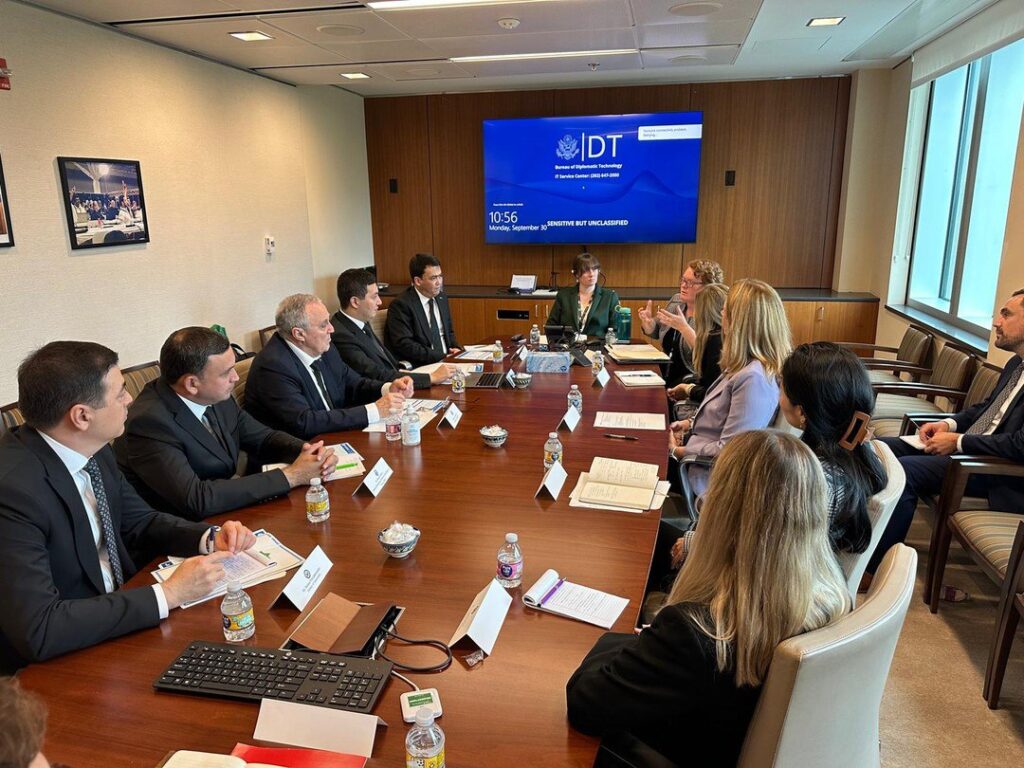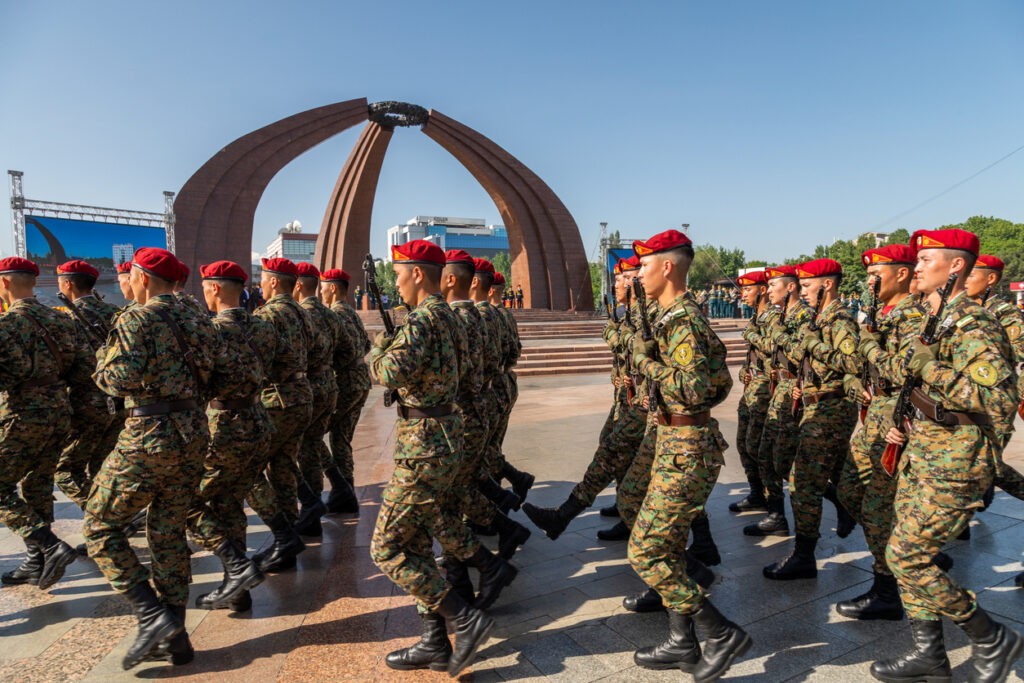BISHKEK (TCA) — Kyrgyz President Sooronbai Jeenbekov promised to raise secondary school teachers’ salaries at a Parliament meeting on April 11.
The country has a chance to develop not due to the amount of human resources, but due to their quality, the President said. Therefore, it is necessary to pay special attention to education and healthcare and introduce new technologies into these sectors, he added.
To achieve this goal, the State should improve social welfare of its citizens.
“We managed to raise the salaries of medical doctors this year,” the President said, adding that the Government will also raise the salaries of teachers from the new school year this autumn.
Jeenbekov also spoke about the need to increase salaries of public servants.
“Salaries of specialists from ministries, departments and local governments are also low, and they will be increased in stages,” he said.
“We cannot demand quality work from teachers whose monthly salary is 10–12 thousand soms (around $150),” lawmaker Abduvakhab Nurbayev earlier said.
Schools overcrowded
According to parliament members, Kyrgyzstan’s regions are facing an educational crisis. There are not enough textbooks, computers, as well as the schools themselves.
Most schools are overcrowded even in the capital, Bishkek, which currently lacks 15 schools.
In some schools in Bishkek and Osh, the number of students is seven-fold higher than the buildings’ design capacity allows, said Deputy Prime Minister Altynai Omurbekova.
In 158 schools of the country children study in three shifts and 191 schools are in disrepair, she added.
There are 1.2 million schoolchildren in Kyrgyzstan.
Textbook problem
According to the Ministry of Education and Science, only 72% of schoolchildren are provided with textbooks in the country.
The Ministry cannot cope with the seemingly simple task — to provide schoolchildren with educational literature. The school year will end soon but some students still have not received necessary textbooks.
The Ministry does not have enough budget funds and donor assistance to provide free textbooks, and parents have to partially or completely buy books for their children. Parents are willing to pay, but some of the textbooks have not yet been printed.
In the Jalal-Abad region in the south of the country, fifth-grade students study Kyrgyz language and literature without any textbooks.
It is good that there is an opportunity to find electronic version of some textbooks on math, physics or chemistry on the Internet. But again, this is not available for all children. Some children, especially in poor families and remote areas do not have access to the Internet.
According to the National Statistics Committee, 25.6% or 1.6 million Kyrgyz people are poor, of which 41 thousand live below the extreme poverty line. Most of the poor (72%) are rural residents.
In Kyrgyzstan, the poor are classified as citizens whose income does not exceed 2,674 soms (about $39) per month. The extremely poor are citizens with incomes below 1,455 soms (about $21) per month.
Private schools
It is believed that children receive a better education in private schools than in public ones. At least, thanks to a small number of students, teachers have the time to focus on each of them.
There are 154 private schools in Kyrgyzstan, and more than 80 of them are in Bishkek. These schools are not accessible to children from low-income families due to high tuition fees.
The Russian language prevails in private schools, but the curriculum for studying the state (Kyrgyz) and foreign languages is also observed.
The private schools are required to comply with the school education standards and basic curriculum. The education cost is set by the schools’ founders and agreed with the State Anti-Monopoly Regulation Agency.
Educational clusters
To implement the Regional Policy Concept of Kyrgyzstan, the Education Ministry has begun the creation of educational clusters in the regions.
There are 91 innovative schools in all areas of Kyrgyzstan established with the support of the World Bank and the Asian Development Bank. About 30 schools are already equipped with the latest generation computers, multifunctional devices, server hardware, interactive boards, and video conferencing system, the Ministry reports.
The tasks of these schools include approbation of e-learning, piloting the introduction of multimedia and electronic technologies, and remote training of teachers.
Access to Internet
Accessible and high-quality Internet means access, first of all, to education, healthcare and business opportunities and, as a result, to economic growth.
OneWeb global communications operator launched low-orbit satellites into space to create the conditions for Internet access to hard-to-reach schools in six countries — Ecuador, Rwanda, Nepal, Honduras, Alaska (USA), and Kyrgyzstan.
The State Committee of Information Technologies and Communications (ICT) and the Ministry of Education and Science of Kyrgyzstan have partnered with UNICEF and OneWeb to connect the Kyzyl October school in the mountain-locked Kotur-Suu village in the Naryn oblast to the broadband Internet in 2020.
The school was selected through UNICEF’s Project Connect, which helped build a school connectivity map with real-time data displaying the Internet connectivity for nearly every school in the country.
According to Yukie Mokuo, UNICEF Representative in Kyrgyzstan, the geographical location of schools directly affects how children receive information in hard-to-reach Kyrgyzstan regions. The Internet school connectivity map helped give a realistic assessment of the situation.
According to the Education Ministry, 86% of schools out of total 2,137 have access to the Internet. However, 35 schools are located in remote mountainous areas, where laying of fiber-optic and wireless communication lines is difficult.
“All schools will be provided with Internet and computer infrastructure,” President Jeenbekov promised.
As part of the School of the Future project, about ten schools will be built in each region with an emphasis on the training of certain specialists. Each student of such schools will be fluent in Kyrgyz, English and Russian, he added.
“In these schools, trainers will be not teachers but managers, bankers and entrepreneurs,” the President said.









